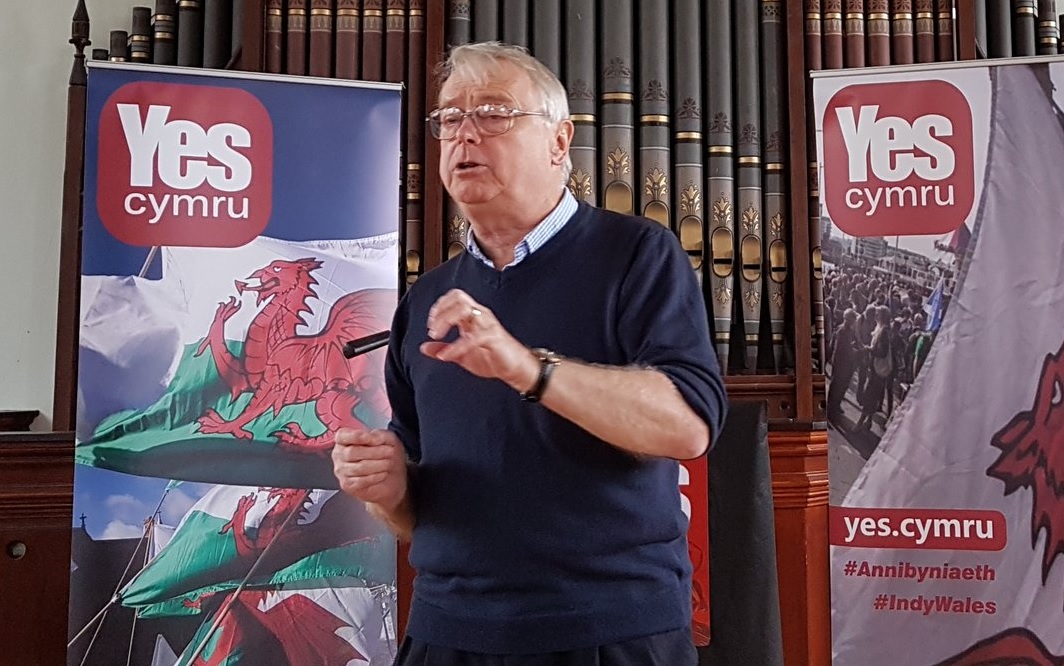Wales’ economy doing better than official figures suggest, says economist

Official statistics are probably underestimating Wales’ GDP and how much the country pays in tax, according to a Swansea University economist.
Dr John Ball said that there was a paucity of accurate information relating to the Welsh economy, but the country was probably less economically dependent on the rest of the UK than thought.
Speaking earlier in the week at the launch of Yes Merthyr he said that because tax figures or Wales were not kept separately economists could only “take a stab at” the correct figures.
“The chances are that we’re actually paying more taxes in Wales than is being recorded, but it’s guesswork,” he said.
“GDP is calculated on final goods. When you see the GDP, it’s things like cars, fridges, tables – things that have been sold, for which there is a capital market price.
“So it, therefore, follows, that when you calculate Wales’ GDP, the steel made in Port Talbot doesn’t count because it is not a final good. That counts when it goes into a car and it is sold in the showroom.
“The wings that are made in Broughton for Airbus don’t count towards Wales’ GDP. It counts when that plane is finally sold to an airline. The engines made in Bridgend do not count until that car is sold as a Ford somewhere.
“So, when we’re told about GDP it’s very vague and there is a big debate in economics at the moment about what we replace GDP with.
“But when we’re told the GDP of Wales is about £60 billion, this is way short of the mark because in fact we produce very few finished goods and its only finished goods and market price that is used to calculate GDP.”
‘Reservoir’
In terms of increasing revenues, he called for the introduction of a tourist tax and a charge for the water supplied to England.
“For a country that allegedly has a substantial tourist industry, we must be the only country in the world that doesn’t have a tourist tax,” he said.
“It’s what is called inelastic in economics. If you think about it, when you’re on holiday, going for a spin in the country and somebody gives you your bill, you don’t jump up and say, ‘I’m not paying that’.
“You say ‘I’ve had a few pints. I’ve had a nice day. Pay the man.’ The fact that four or five percent of that is a tourist tax – you don’t notice – you don’t care.
“Severn Trent accounts last year, now I entirely accept this is not all from the reservoirs in Wales, but Severn Trent’s turnover last year was £1.5 billion.
“The good people of Birmingham and Liverpool and wherever else it sends its water, paid for water for their taps and their toilets and their kettles, one and a half thousand million pounds.
“It’s not a joke anymore. It’s a lot of nurses. It’s a lot of doctors. That is a lot of good schools.”
‘Depot’
Discussing structural problems within the Welsh economy Dr Ball expressed concern about the preponderance of large retail chains which tend to bypass local suppliers and bring their products in from England.
“We need a situation where we are driving businesses within Wales for Wales,” he said.
“As an economist, I am a great believer in what is known as the multiplier: how quickly money multiplies through the economy and how it builds an economy and you don’t need to understand anything about economics to understand the multiplier.”
If large retailers such as Costa bought bread, cakes, coffee, furniture etc from local business people, then local businesses in turn, would source produce and goods from farmers and manufacturers locally, who would employ local lorry drivers to transport their wares.
“That’s the way economies work,” he said. “But the reality of it is, the next time you’re in Costa or Marks and Spencer or anywhere else – the reality is, it comes down this morning on a lorry from a distribution depot the other side of the Severn Bridge.”
Editor: Enjoying Nation.Cymru? Please help support investigative journalism in Wales by subscribing to Nation.Cymru through the ‘Subscribe’ button below.
Support our Nation today
For the price of a cup of coffee a month you can help us create an independent, not-for-profit, national news service for the people of Wales, by the people of Wales.





